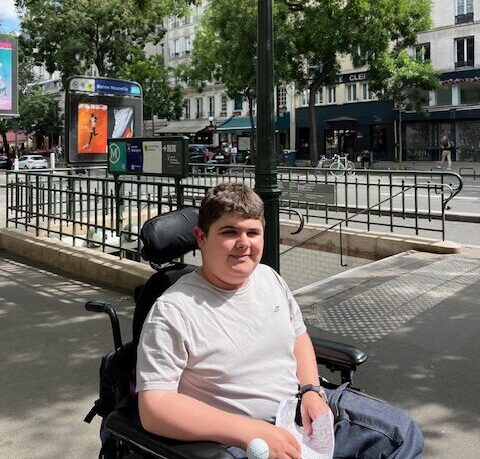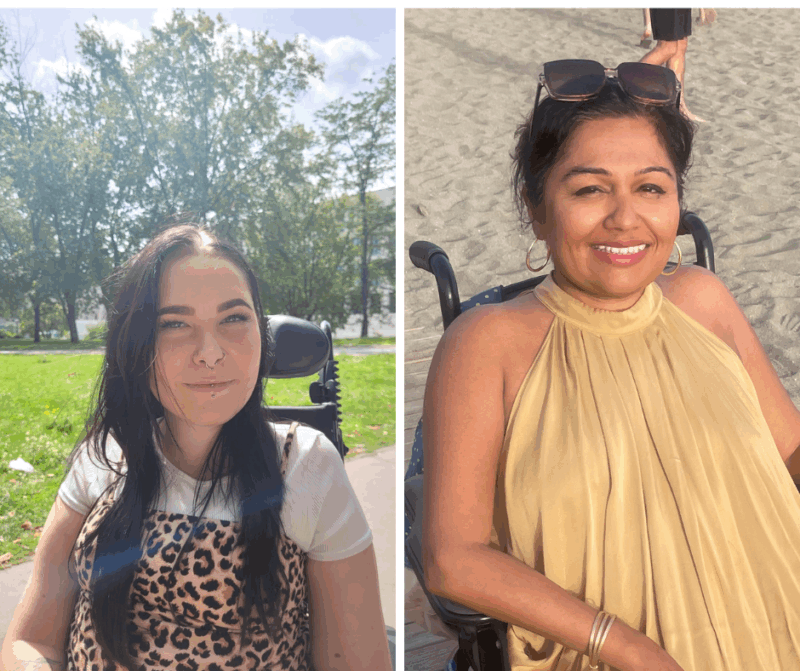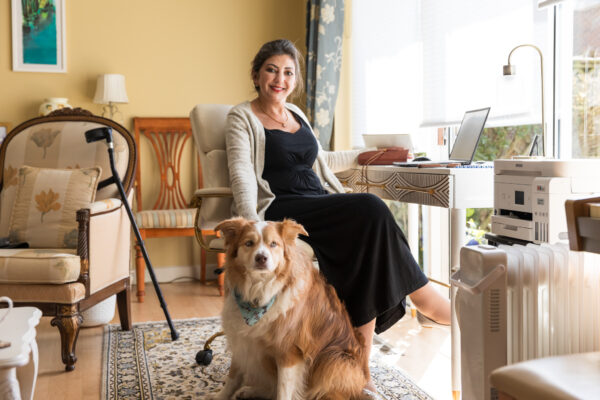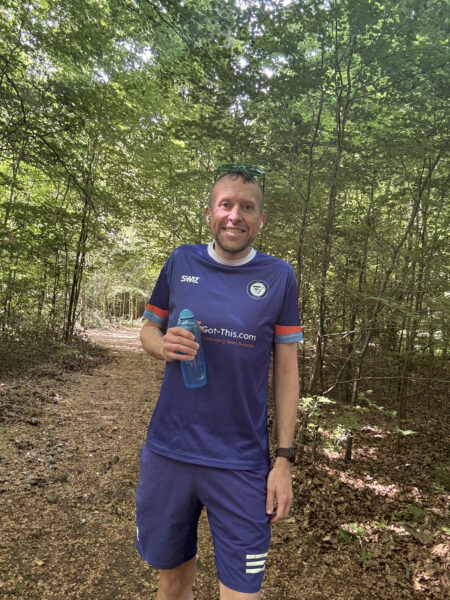Alfie is 19 and lives with Duchenne. In recognition of Duchenne awareness day, he shares his story about living at university, his passions for history and travel, and his thoughts on why awareness days like this are important.
"I live a full and active life with Duchenne, and so can others."

Let’s start with the good stuff. I’ve always had a big passion for sports — I’m a huge fan of rugby league and a proud Leeds Rhinos supporter. My dad and I regularly go to home matches together, and I love the atmosphere and the thrill of the game. In summer, you’ll probably find me watching cricket, and when I can, I score for a local team.
When I’m not at a match, I’m probably in a museum or a gallery. Studying History of Art at the University of York means I get to blend my personal interests with my academic ones, and I could honestly spend hours talking about exhibitions. I’m also an avid reader and, unsurprisingly, historical fiction is my genre of choice.
Living at university has given me so much independence
I live on campus at university in York, which has been an incredible experience. I’m lucky enough to be able to stay in the same accommodation for all three years of my degree. This was a huge relief for me as it means I can have a university experience that’s as similar as possible to other students.
Living on campus makes it easier for me to attend events, societies, and lectures without the hassle of long commutes. Being minutes away from everything helps me conserve energy and stay involved. For someone with Duchenne, that kind of balance is crucial.
I refuse to let the challenges of travelling stop me from seeing the world
I missed out on school trips to places like Berlin and Paris because the logistics for wheelchair users just weren’t considered. We’re trying to change that now though, taking trips as a family that challenge those limits.
“Last year, I took my first trip to Paris. I absolutely loved being in the heart of the city, wandering through streets, eating good food, and visiting incredible galleries like the Musée d’Orsay and the Pompidou Centre.”
Finding accessible public toilets was a real challenge though, and the Paris metro system is basically off-limits for wheelchair users.
That experience helped inspire a bigger adventure — a road trip through Northern Europe with my parents. I’ve booked everything: we’ll travel in my van from Leeds to Canterbury, hop on the Channel Tunnel, then visit Rouen, Lille, Ghent, Rotterdam and Amsterdam before heading home on an overnight ferry to Hull. It’s a trip full of cathedrals, art and culture, so I’m really looking forward to it.
It’s often easier to just stay in one place when travelling, simply because it’s more predictable and accessible. But that can feel limiting.
“This trip is about pushing boundaries and experiencing as much as I can.”
I’m also putting my French A-Level to use and getting in some research for my degree, so that’s a bonus!
Duchenne awareness day helps people understand what this condition is — and what it isn’t.
Duchenne Awareness Day isn’t just about raising money or sharing facts. For me, it’s about educating people about the condition. That can be everyone from medical professionals so that we can feel comfortable and safe in hospital, to people that work in the access and inclusion field, so they know what Duchenne is.
“Awareness is so vital when it comes to professionals, especially in healthcare. I’ve had moments that really stuck with me — like hearing a nurse ask my dad, “What’s wrong with him?” right in front of me.”
Or being taken down for a procedure and seeing the staff totally unprepared for the fact that I can’t support myself on my side, despite being told beforehand. These moments can be upsetting, and they highlight the need for much better training and understanding.
For those that are aware of Duchenne, I think people often assume the worst. Yes, it brings fatigue, weakness and complications. But I still live a full, active and exciting life. And so can others with the condition.


